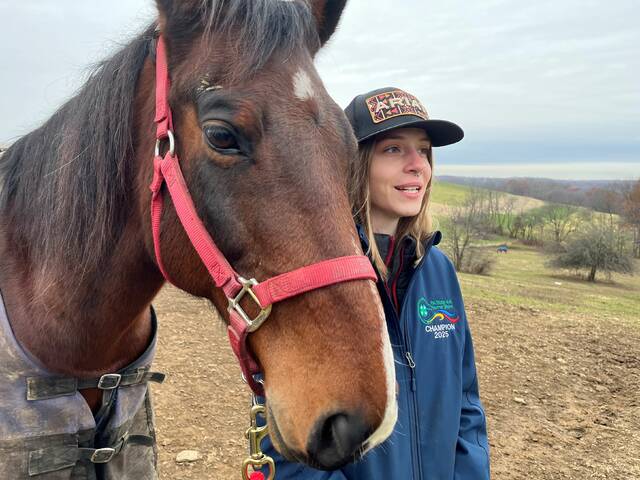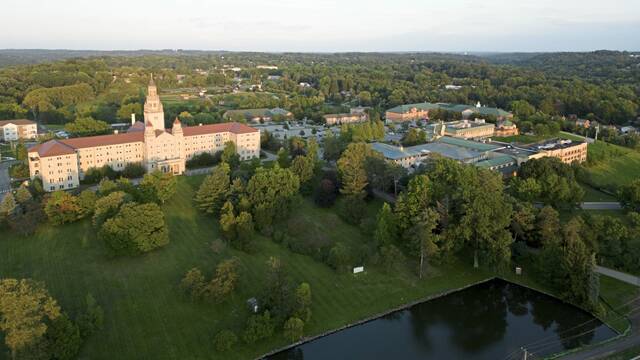The Richland History Group will monthly highlight notable events from the area’s past.
Simon Girty (1741-1818), the white man turned Indian, and known as “The Great Renegade” or “White Savage,” is likely the most despised person ever to set foot in Richland Township. He was a frontiersman who defected from the new U.S. Continental Army in 1778 after earlier marching with George Washington, joined forces with the British against the Americans during the remainder of the Revolutionary War and led Indian raids against colonial settlers in numerous mid-Western states.
After 14 years of a tough colonial frontier boyhood, he was taken from his home near Harrisburg by the Shawnee in 1756. Girty was then given to the Seneca of the Iroquois Nation and was fathered in northwestern Pennsylvania by the famous Mingo (Ohio Seneca) Chief Guyasata. Even though of Irish and Scottish decent, Girty became an Indian, spending over 7 years participating in Indian warfare and learning Native American culture and 11 languages. In 1764, Guyasata returned Girty to Pittsburgh’s Fort Pitt, where he served the British and Continental armies as an interpreter.
By tradition, Girty and his British-loyalist brothers James and George camped at times between the mid 1760s and early 1790s with renegade Delaware, Shawnee, Mingo and Wynadot on Richland Township’s “Girty’s Knob” (the hill above the Route 910 and Meridian Road intersection). From that location (a high point in the township and not far from older Indian paths), they were said to have undertaken pirate-like attacks against “rebel colonist” settlers using those paths. An 1876 hand-labeled Richland map names this location “Gurtis Knob. This apparent misspelling is likely a mapmaker mistake. James, George and particularly Simon Girty were so notorious for committing atrocities, that mothers would often tell their misbehaving children to “behave or else the Girtys will get you!”
I have not found any contemporaneous writing of Girty actually being at this Richland camp site, but four factors suggest he almost certainly was: 1) 18th-century Indians did very little writing; 2) the U.S. had placed an $800 bounty on Girty’s head, so he likely would have kept his whereabouts secret; 3) since his brothers camped in Richland and he was assigned to nearby Fort Pitt, it is almost inconceivable that he would not have occasionally visited them there in 15 years; and 4) historical accounts by West View Borough (the home of Simon’s oldest brother, Thomas, a U.S. supporter) mention that “the Girtys (excluding Thomas) roamed the area as far north as Richland Township, terrorizing white settlers and peddling their scalps to the British for $10 apiece.”
Girty did commit heinous acts; but, because of his reputation, he was unfairly accused of many in which he was not involved. His brother James often was the guilty party. Girty’s reputation was heightened by the horrible 1782 death of U.S. Army Colonel William Crawford (whom Girty had served under) at the hands of Delaware Indian Captain Pipe. The colonist rumor was that Girty relished with glee Crawford’s agonizing death and never offered to intercede. Historical writings show that Girty did try to stop Captain Pipe, but was threatened with his own death if he attempted to stop it.
Despite being considered a traitor by the U.S. government, Girty was a hero to Native Americans, the British government and colonial loyalists. Unbeknownst to most, Girty’s compassion actually saved many American lives from Indian scalpings. He had to have been torn internally by the fine line he walked mentally. Am I a white man or Indian? A colonist or loyalist? He perceived that the new U.S. Government was treating Native Americans very poorly in regard to their land, which he felt was being taken from them unfairly and for a pittance. Girty left Pennsylvania for loyalist Detroit in 1778, returning briefly to Pittsburgh in 1792. When Detroit came under U.S. control, he moved to Canada, where he died in 1818 a relative pauper and nearly blind.
Simon Girty remains to this day a complex, controversial one-time Richland Township camper.








